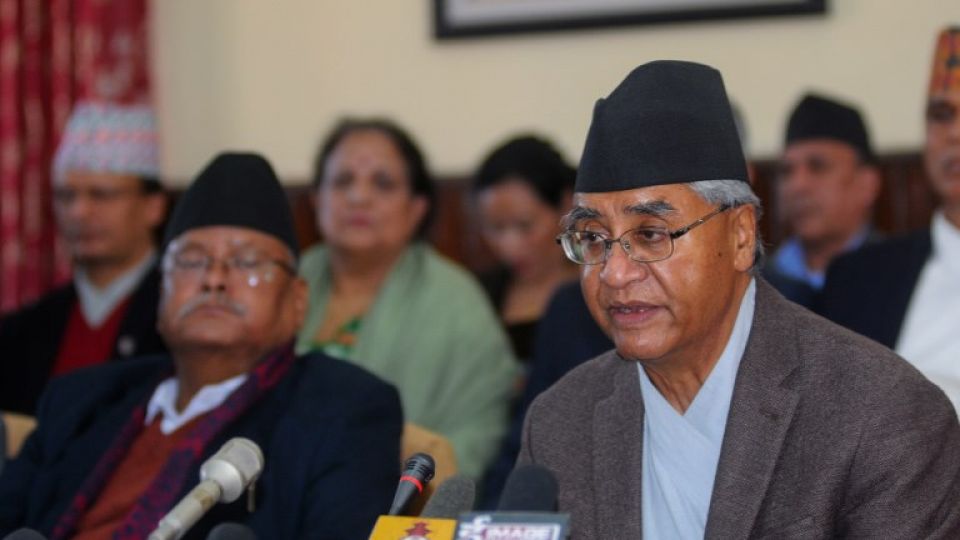February 27, 2018
Nepal must learn from neighbouring countries and apply various policies and approaches to help the economy grow.
As Indian Prime Minister Narendra Modi was speaking against protectionism and expressing his arguments in favour of globalisation at the annual meeting of the World Economic Forum in Davos, Switzerland, in India, around 100 trucks laden with ginger were stranded at the Nepal-India border as Indian customs officials prevented the import of Nepali ginger into the Indian market. Nepali traders have long been exporting ginger to the Indian market. Nepal is a land-locked country and 80 percent of its imports come from India. In the first 10 months of fiscal year 2016/17, Nepal’s trade deficit with India reached a record high of Rs491 billion.
Indian customs officials have presented both tariff and non-tariff barriers as grounds for preventing the import of Nepali ginger into the Indian market. New tariff barriers imposed on Nepali ginger are Goods and Services Tax (GST) and quarantine charges. Additionally, currently imposed non-tariff barriers prevent the import of Nepali ginger into India because ginger comes with Nepali earth. This is not the first time that India imposed tariff and non-tariff barriers on the import of ginger and other agricultural products such as tea and coffee. Such Indian trade policy towards Nepali agricultural products against the backdrop of globalisation will have a long term impact on the latter’s economic future. Particularly since India is the major market for Nepali ginger.
Expressing major worries in Davos, Modi stated that protectionism is raising its head, tariff and non-tariff barriers are being imposed, globalisation is losing its lustre and the global supply chain is slowing down. His conclusion was that isolationism is not a solution. As he was speaking in Davos–perhaps US President Donald J Trump’s ‘America First’ policy was in his mind–because of which free global trade is expected to face a setback.
Of course, it also bears mentioning that India had imposed a new barrier on the import of electricity from neighbouring countries. The barrier demands that Indian firms have 51 percent investment in a power project in Nepal if they are to buy electricity from it. This particular policy doesn’t entirely seem to go in line with Modi’s worries on gradual losing the lustre of globalisation. Instead, it smacks of protectionism.
Lesson learned
Nepal can learn lessons from Modi’s economic policy that has helped protect Indian industries and agriculture, boosted exports, and achieved prosperity in a speedy manner. Through such examples, Nepal can boost exports to India and other countries. In the context of new Indian tax and non-tax barriers on Nepali agricultural products, approaches to boost Nepal’s export and the economy must be explored. As the country is heading towards forming its first elected government as per the 2015 constitution, Nepali farmers and potential investors, domestic and foreign alike, are anxious about how the new government will formulate its trade, investment and tax policies vis-à-vis India in order for Nepali products to get smooth access to the Indian market.
As the USA and India are gradually drifting away from the spirit of globalisation in practical terms under different pretext and slogans, it is unjustifiable for poor countries like Nepal to strictly remain on the path of globalisation. Economic nationalism is gradually spreading from the USA, and is being imitated by other countries. If Nepal continues to be a victim of tariff and non-tariff barriers imposed by countries with whom Nepal’s trade imbalance remains extremely high, there will be a need to immediately review custom policies to make Nepali industries and agriculture competitive.
Way forward
Nepal can and must formulate certain policies which will help eliminate poverty, create jobs at home and achieve industrial growth. Appropriate tax policies must be formulated that will create or eliminate barriers to promote national interests. As an economically weak country, Nepal can’t afford to and shouldn’t be a unilateral proponent of globalisation and free trade.
India and other South Asian countries have put Nepal’s agricultural products on a sensitive list which creates barriers for export. Unless Nepal is able to export its surplus electricity and agricultural products to India and other countries, the prosperity and stability envisioned by political parties will remain unfulfilled.
Diversification of trade is the first step to enhance export of ginger, tea, coffee and other agricultural products. Trade diversification reduces dependency on one or two countries. For this, Nepal needs to redouble its economic diplomacy to promote export and reduce the ever-increasing trade deficit.
We must not hesitate to learn from neighbouring countries and we must apply various policies and approaches to help the economy grow. Nepal may apply tariff and non-tariff barriers on certain goods to help farmers and the economy. A single quarantine standard needs to be established on both sides of the border between India and China as both countries export agricultural products to each other. Nepal needs to provide subsidies to the affected farmers when their products are blocked by an importing country under various pretexts and when adverse weather destroys the crops. Nepal must negotiate a settlement for fair trade deals with a view to promote its industries and agriculture.
(This article was written by Purna Silwal and appeared originally in the Kathmandu Post)


